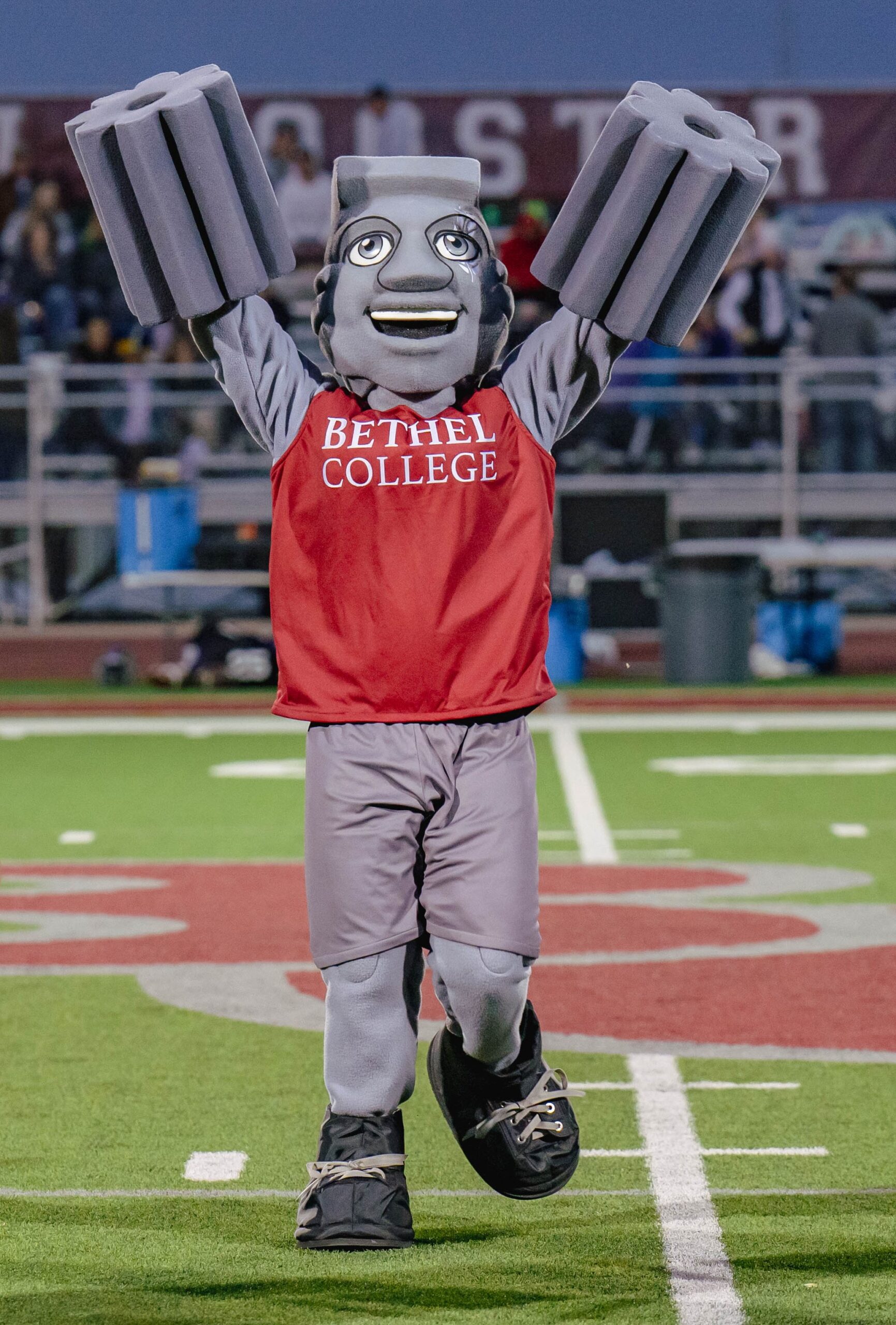With the end of the fiscal year this past July came the end of one capital campaign and the start of preparations for the next.
“Engage the Future was an unexpectedly long but successful campaign in a number of ways,” said Pam Tieszen, Bethel vice president for institutional advancement.
In early 2019, Bethel launched Engage the Future, a $20 million campaign under the direction of Tieszen’s predecessor, Brad Kohlman.
At the time, President Jon Gering, Bethel board members, consultants and the administrative cabinet identified key areas for college growth, including: recruiting students; improving the student experience on campus; enhancing academic offerings; and increasing technological capacity, among others.
Campaign accomplishments include growing the Annual Fund (nonrestricted funds) by $4.7 million; academic program enhancements in the form of two new majors, Software Development and Health and Human Performance, an endowed chair in economics ($1.5 million), and a half-million endowment in biology; and technology upgrades in the form of major infrastructure for improved internet access and performance across campus, as well as classroom “smart” upgrades.
Among additional improvements to campus facilities were upgrades to the Mabee Observatory, and construction of the softball building and the Thresher Stadium locker room and viewing suite.
Some of these projects were envisioned in the original campaign, while others developed as it went along. A major piece of Engage the Future that has undergone perhaps the most adjustment over the course of the campaign is the campus Wellness Center.
While the proposed facility now looks different than it did at first, it has retained most of its key aspects. Construction is scheduled to begin in November, with completion expected by fall 2025.
This year’s Fall Festival included a groundbreaking for the Wellness Center on Saturday afternoon (Oct. 5), with representatives of the Wichita architectural firm Tessere and of McCownGordon Manufacturing present.
Tieszen emphasized that in addition to a successful completion of the capital campaign, Bethel has also seen significant growth in planned giving.
“Over the five years [2019-24], Bethel has received $18 million in planned gifts through the Heritage Roll of Honor, our planned giving program,” she said. “At our spring 2024 Heritage Roll of Honor service, we recognized 59 alumni and friends who have left bequests for Bethel.
“These gifts come in either restricted or unrestricted form. Restricted estate gifts can be designated anywhere the donor wishes.
“Many of them are for endowed symposiums, scholarships, programs or chairs. We had significant gifts directed to scholarships that provide needed financial aid for today’s students.”
As of 2020, undesignated estate gifts become part of the college’s contingency and discretionary fund, a reserve that holds 15% of the current operating budget in the event of an unexpected need.
If the contingency exceeds the 15% threshold, excess funds become discretionary and can be directed by administration and the board.
“Some examples of discretionary use include capital projects such as refinishing the Schmidt Track in Thresher Stadium and completing the stadium locker room, and faculty and staff stipends to counter the past two years of high inflation,” Tieszen said.
With Engage the Future wrapping up, Tieszen and her staff are now preparing for the next capital campaign, which would start in 2025.
The list of potential foci for the campaign includes renovations to Haury Hall (first-year student residence), endowed funds for the Employment Experiences (“work college”) initiative, improvements to and an endowment for the library, a number of athletic facilities improvements, and continuing upgrades to classroom furnishings and technology.
All these are currently in the “suggestion only” stage, with much research left to do.
Kansas City-based Byrne Pelofsky & Associates has been engaged to conduct a feasibility study, Tieszen said.
The consultants will interview board members, administrators and key alumni, to determine questions around the campaign, level of interest in various aspects of the campaign and which donors are willing to support it.
Bethel is a four-year liberal arts college founded in 1887 and is the oldest Mennonite college in North America. Bethel was the first Kansas college or university to be named a Truth, Racial Healing and Transformation (TRHT) Campus Center, in 2021. For more information, see http://www.bethelks.edu













